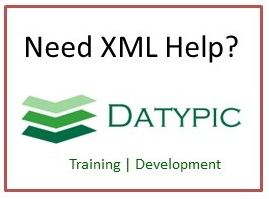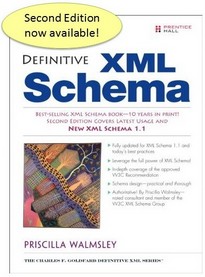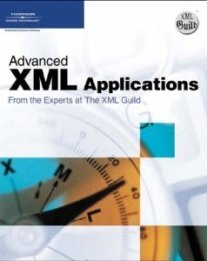CarrierRouteBaseType
Complex type information
Namespace: http://www.openapplications.org/oagis/10
Schema document: Common.xsd
Properties: ID: oagis-id-41be22160c9849aa9a94b56377c5ed49
Content
- Sequence [1..1]
- ID [0..1] Is the Identifiers of the given instance of an entity within the scope of the integration. The schemeAgencyID attribute identifies the party that provided or knows this party by the given identifier.
- RevisionID [0..1] Is the revision of the semantically named document. The combination of the ID and its revision uniquely identifies the associated entity.
- VariationID [0..1]
- DocumentIDSet [0..*]
- LastModificationDateTime [0..1] The datetime on which the object was last modified
- DocumentDateTime [0..1] The date that document was created within the system of record.
- Description [0..*]
- Note [0..*]
- DocumentReference [0..*]
- Attachment [0..*] The Attachment represents binary data files that may be included within a BOD. These files replace the paper specifications and drawings attached to a BOD definition to clearly communicate design requirements. This Data Type is optional. Attachment usage is further defined by its position.
- TrackingID [0..1] TRACKINGID is a unique identifier for the purpose of tracking an individual package or shipment Examples of a valid TRACKINGID include: •An express parcel tracking number as typically assigned by UPS, DHL, Fedex or other similar carriers. •A UCC (Uniform Code Council) Serialized Shipping Container (SCC-18) identifier, as assigned by the shipper. •A "Pro Number" (Progressive Number), as assigned by an LTL (less-than-truckload) freight carrier. Since the same Pro Number can be assigned to multiple shipping units within an LTL shipment, the SHIPUNITSEQ and SHIPUNITTOT field identifiers may be used to identify the individual pieces. •The unique identifier of a motor freight trailer, railroad box or tank car, ocean freight container or other transportation vessel.
- ActualShipDateTime [0..1] Inidicates the shipping date and time of the line item.
- ScheduledDeliveryDateTime [0..1] The scheduled delivery date provided by the supplier.
- ActualDeliveryDateTime [0..1] Is the actual delivery date and time of the line item.
- RequiredDeliveryDateTime [0..1] Indicates the date in which the buyer/customer requests the order to be delivered.
- PromisedDeliveryDateTime [0..1] Indicates the date in which the associated was promised to be delivered to the customer or consumer.
- LoadingDateTime [0..1] Identifies the date and time a shipment loading process is complete.
- EarliestShipDateTime [0..1] This indicates the earliest possible date at which a shipment can be made for the line item
- PromisedShipDateTime [0..1] Indicates the date in which the associated object was promised to be shipped from the supplier.
- ScheduledShipDateTime [0..1] The scheduled date to be shipped provided by the supplier.
- PointOfLoadingCode [0..1] Identifies the location shipped goods are to be loaded.
- PointOfShipmentCode [0..1] Identifies the location the goods are to be shipped.
- PointOfStagingCode [0..1] Identifies the location goods are to be placed prior to loading for shipment.
- TransportationMethodCode [0..1] Identifies the general type of carrier transportation used to deliver goods.
- TransportationTerm [0..1] The terms of the transportation agreement.
- DunnageWeightMeasure [0..1] Specifies details of the shipped unit weight
- TareWeightMeasure [0..1] Tare weight of the associated Entity. The Tare weight is the weight of the packaging when empty (in the case of a pallet the weight of the empty pallet) that when subtracted from the Gross weight results in the Net weight.
- NetWeightMeasure [0..1] Net weight of the associaed item. The net weight is calculated by subtracting the tare weight or the weight of the container from the GrossWeight.
- GrossWeightMeasure [0..1] Gross weight of the associated entity. The total weight of the entity without reduction of packaging or container. I.e The Gross wieght of a pallet of goods includes the weight of the pallet.
- NetVolumeMeasure [0..1]
- TotalVolumeMeasure [0..1] Quantifies the volume, or amount of space, that is occupied by an item, container or shipment.
- Container [0..1] Uniquely identifies a shipping container
- Status [0..1] Indicates the status of the associated object by providing the Status Code along with a description and when the status is effective.
- Charge [0..1] Specifies the details for Charges that may be applied to the associated transaction
- Party [0..*] A generic Party for non-validated or application-validated parties. A work-around for situations where Schema-validation of Parties is not feasible or not desired.
- RouteStop [0..*] Provides information pertaining to a particular pickup or delivery stop along the journey of a routed shipment. Each instance of the RouteStop pertains to a single physical destination shipping location and requires a subordinate ShipToParty.
from type DocumentIdentificationBaseTypefrom type HeaderBaseTypefrom group FreeFormTextGroupfrom group ReferencesGroupfrom group ShippingWeightAndVolumeGroup
Attributes
| Name | Occ | Type | Description | Notes |
|---|---|---|---|---|
| typeCode | [0..1] | CodeType_1E7368 | ||
| actionCode | [0..1] | ActionCodeContentType |
Used by
- Element CarrierRoute via derived type CarrierRouteType
Type inheritance chain
- DocumentIdentificationBaseType
- HeaderBaseType
- CarrierRouteBaseType
- extended by CarrierRouteType
- CarrierRouteBaseType
- HeaderBaseType



